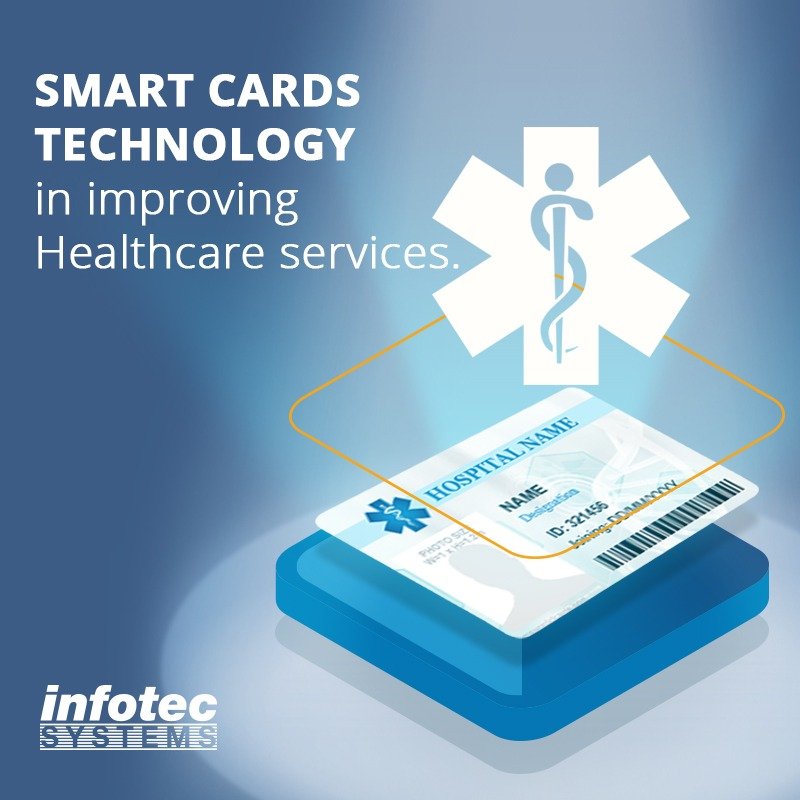healthcare smart cards innovation in a decade-old technology

The smart card technology had been here for over a decade, it is powered by a powerful mini-computer, the micro-chip. Throughout the years, this smart chip technology had propagated to new horizons, with multi-application usage and robust IT systems integrations.
A top of mind purpose for the smart card, is enabling higher rates of data exchange and secure data encoding for consumer privacy protection and anti-theft ideals; hence, making it an ideal medium to store sensitive information such as identity and personal health information.
Smart cards and smart card systems confide numerous application and capabilities for the healthcare sector, yet for relevancy and to deduce redundancy, we had identified major usages for smart cards in our new Covid-controlled paradigm.
Improving Patient Verification during critical and emergency care
For healthcare providers, from health insurance providers, care centers and even hospitals, accurate identification cross-organizations and cross-geographic boundaries is crucial at the level of healthcare information exchange. Through our all-in-one smart card system solution, GlobeMed and GroupMed Insurance encoded card-holder data on their instantly issued smart cards, which allowed for faster admission and less time in accommodating the specific needs of the patient at hospitals and specifically Emergency departments.
Our smart card system allows for accurate patient identification across several healthcare providers’ networks, and different systems, as well as acknowledgement of any cross-border medi-care systems, all while ensuring the smart cards system delivers on risk mitigation of identity theft, data breaches and fraudulent use.
Enabling medical systems’ interoperability
This integrated, Omni-like channel verification system brought-up by the smart card system, enables quality assurance of healthcare provision. It cuts down on the inefficiency of prolonged search for the right or relevant medical records; instead it creates a common space, where a patient’s medical records are interlinked and makes it easier to find the right healthcare provision for the patient. Take a Covid patient par example, without convenient and accurate access to the patient’s existing health information, their might be a dire response to his treatment, since the physician is not notified of the patient’s existing medical records. The smart card system on the other hand, will provide the physician with full autonomy in accessing existing patient’s medical audits and their recorded health amplifications.
Co-Payments and Health-bill Settlements
With increased pressure on the cash market, and with contactless payments exceeding the world’s expectations, financial data encoding is becoming a frequent practice. In the healthcare sector, financial encoding on smart cards can ensure a proper and secure check-in and check-out. Enabling contactless payments form the healthcare smart card can automate the processing of patient’s information and settling their bills. The smart card can trigger the back-end payment processing of the health care institution at the registration stage and again at the check-out stage, to reduce the manual keystrokes and improve information exchange quality.
Branding & Community Involvement
The latest software development kit developed for the Evolis line of smart card printers, takes a consumer-first approach in its interface build, allowing healthcare professionals to build and brand their smart cards at the convenience of their desktop. Adding your brand and identity can help evolve a notion of resemblance between your healthcare institution and the consumer, as well as evoke a feeling of personalized healthcare provision.
With nowadays mindful consumers, building alliances with the community is a highly-regarded branding factor. The smart card system can allow you to expedite healthcare services between your healthcare institution and the local merchants, such as pharmaceuticals. The smart card holders can benefit from special care/ service or even get offered a discount on medical items by presenting or paying using their healthcare smart card. The smart card system can be utilized to promote targeted wellness campaigns that aims to provoke positive behaviors from patients.
A similar rewards approach can be used for your in-bound team members, such as physicians at hospitals or insurance brokers at healthcare insurance companies; The same smart card that acts as the employee’s ID, can be used to verify the patient at the point of emergency care, keeping you aware of your employee’s current tasks and help you pinpoint actions that are worthy of reward.